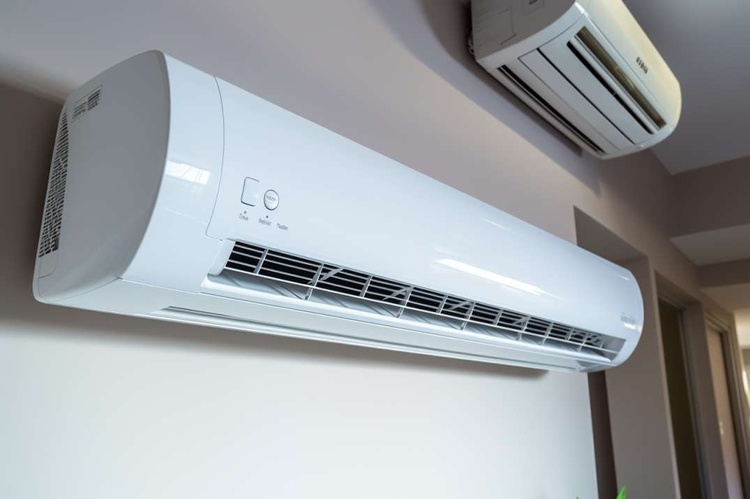Understanding Air Conditioning: A Comprehensive Guide to Cooling Solutions
Air conditioning has become an essential part of modern life, providing comfort and relief from sweltering temperatures. This article explores the world of air conditioning, from portable units to professional services, helping you make informed decisions about your cooling needs.

What is an air conditioner and how does it work?
An air conditioner is a system that removes heat and moisture from indoor air, creating a more comfortable environment. The basic principle involves a refrigeration cycle, where a refrigerant absorbs heat from inside and releases it outside. Key components include an evaporator, compressor, condenser, and expansion valve. As warm air passes over the evaporator coils, the refrigerant absorbs heat, cooling the air before it’s circulated back into the room.
What are the different types of air conditioners available?
Several types of air conditioners cater to various needs and spaces:
-
Window units: Compact and affordable, ideal for single rooms.
-
Split systems: Consist of indoor and outdoor units, offering quiet operation and efficiency.
-
Portable air conditioners: Mobile units that can be moved between rooms.
-
Central air conditioning: Whole-house systems that cool multiple rooms through ductwork.
-
Ductless mini-splits: Similar to split systems but without the need for extensive ductwork.
Each type has its advantages, and the best choice depends on factors like room size, budget, and installation requirements.
How do I choose the right air conditioning unit for my space?
Selecting the appropriate air conditioner involves considering several factors:
-
Room size: Calculate the square footage to determine the required cooling capacity (BTUs).
-
Energy efficiency: Look for units with high SEER (Seasonal Energy Efficiency Ratio) ratings.
-
Features: Consider options like programmable thermostats, remote control, and air purification.
-
Installation requirements: Assess whether you need professional installation or can manage a DIY setup.
-
Budget: Balance upfront costs with long-term energy savings.
For larger spaces or multi-room cooling, consult with a professional to determine the most effective solution.
What are the benefits of a portable air conditioner?
Portable air conditioners offer unique advantages:
-
Flexibility: Easily move the unit between rooms as needed.
-
No permanent installation: Ideal for renters or those who can’t install window units.
-
Supplemental cooling: Can be used to boost cooling in specific areas.
-
Space-saving: Doesn’t take up window space like traditional units.
-
Cost-effective: Often cheaper than installing a central air system.
While portable units may not be as efficient as permanent installations, they provide a versatile cooling solution for many situations.
How often should I service my air conditioning unit?
Regular maintenance is crucial for optimal performance and longevity of your air conditioner. In the United Kingdom, where air conditioning is less common than in warmer climates, many homeowners overlook the importance of regular servicing. However, annual maintenance can significantly improve efficiency and prevent costly breakdowns.
Typical service tasks include:
-
Cleaning or replacing filters
-
Checking refrigerant levels
-
Inspecting and cleaning coils
-
Verifying thermostat accuracy
-
Ensuring proper airflow
For most residential units, an annual service before the summer season is recommended. However, in areas with longer cooling seasons or for systems in constant use, bi-annual check-ups may be beneficial.
What should I consider when seeking air conditioning services?
When looking for air conditioning services in your area, consider the following:
-
Credentials: Ensure the technician is F-Gas certified, which is required in the UK for handling refrigerants.
-
Experience: Look for companies with a proven track record in air conditioning installation and maintenance.
-
Range of services: Choose a provider that offers comprehensive services, including installation, maintenance, and repairs.
-
Response time: Opt for services that offer prompt assistance, especially for emergency repairs.
-
Pricing: Compare quotes from multiple providers, but be wary of unusually low prices that may indicate subpar service.
| Service Provider | Services Offered | Key Features/Benefits |
|---|---|---|
| Cool Solutions Ltd | Installation, Maintenance, Repairs | 24/7 emergency service, F-Gas certified technicians |
| Climate Control UK | Installation, Servicing, Energy Assessments | Specializes in energy-efficient systems, Free consultations |
| AirCool Experts | Installation, Repairs, Commercial Services | Experienced in both residential and commercial systems, Extended warranties |
| Chill Masters | Installation, Maintenance, Duct Cleaning | Offers duct cleaning services, Eco-friendly options available |
Prices, rates, or cost estimates mentioned in this article are based on the latest available information but may change over time. Independent research is advised before making financial decisions.
In conclusion, understanding air conditioning options and maintenance requirements can help you make informed decisions about your cooling needs. Whether you opt for a portable unit or a full central air system, regular servicing and choosing the right provider are key to ensuring comfort and efficiency in your home or office.




